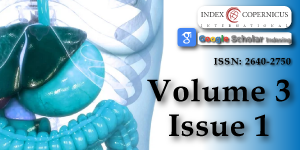Transcatheter Arterial Embolization for the treatment of upper gastrointestinal bleeding
Main Article Content
Abstract
Background: Transcatheter arterial embolization can be used for patients with recurrent bleeding from the upper gastrointestinal tract after failed endoscopic treatment. Our aim to identify the clinical and technical factors that influenced the outcome of transcatheter embolization for therapy of upper gastrointestinal bleeding after failed surgery or after failed endoscopic treatment in high risk surgical patients.
Methods: We performed a prospective study to analysis of the 15 patients who underwent Transcatheter arterial embolization for nonvariceal upper gastrointestinal bleeding at Alshifa hospital from January 2015 to March 2019.
The following variables were recorded: demographic data, time from bleeding start to TAE, units of packed red cells before TAE and units of packed plasma before Transcatheter arterial embolization and we analysis 30 days rebleeding rates and mortality.
Results: Patients treated with Transcatheter arterial embolization (median age: 62 years, range: 14–79 years).The technical success rate of the embolization procedure was 100%. Time from bleeding start to TAE was 2.1 (1-4) days , units of packed red cells before Transcatheter arterial embolization was 12.8 (4-22) packed and units of packed plasma was 3.2 (2-5) packed. Following 30 days after embolization, 2 (13%) patients had repeated bleeding and 3 (20.0%) patients died.
Conclusion: In our experience, arterial embolization is a safe and effective treatment method for upper gastrointestinal bleeding and a possible alternative to surgery for high-risk patients.
Article Details
Copyright (c) 2019 Habib M, et al.

This work is licensed under a Creative Commons Attribution 4.0 International License.
Bjorkman DJ, Zaman A, Fennerty MB, Lieberman D, Disario JA, et al. Urgent vs. elective endoscopy for acute non-variceal upper GI- bleeding: an effectiveness study. Gastrointest Endosc. 2004; 60: 1-8. Ref.: http://bit.ly/2XtVMmF
Higham J, Kang JY, Majeed A. Recent trends in admissions and mortality due to peptic ulcer in England increasing frequency of haemorrhage among older subjects. Gut. 2002; 50: 460–464. Ref.: http://bit.ly/2EXSNMp
Andersen IB, Bonnevie O, Jørgensen T, Sørensen TI. Time trends for peptic ulcer disease in Denmark, 1981–1993: analysis of hospitalization register and mortality data. Scand J Gastroenterol. 1998; 33:260– 266. Ref.: http://bit.ly/2QYCy6w
Walt R, Katschinski B, Logan R, Ashley J, Langman M. Rising frequency of ulcer perforation in elderly people in the United Kingdom. Lancet. 1986; 1:489–492. Ref.: http://bit.ly/2HZ1ckh
Barkun AN, Bardou M, Kuipers EJ, Sung J, Hunt RH, et al. International consensus recommendations on the management of patients with non-variceal upper gastrointestinal bleeding. Ann Intern Med. 2010; 152: 101-113. Ref.: http://bit.ly/2wG3HBJ
Zandrino F, Tettoni SM, Gallesio I, Summa M. Emergency arterial embo-lization of upper gastrointestinal and jejunal tumors: an anal-ysis of 12 patients with severe bleeding. Diagn Interv Imaging. 2017; 98: 51-56. Ref.: http://bit.ly/2QUM1Mc
Park S, Shin JH, Gwon DI, Kim HJ, Sung KB, et al. Transcatheter Arterial Embolization for Gastrointestinal Bleeding Associated with Gastric Carcinoma: Prognostic Factors Predicting Successful Hemostasis and Survival. J Vasc Interv Radiol. 2017; 28: 1012-1021. Ref.: http://bit.ly/2WkHsvB
Nykänen T, Peltola E, Kylänpää L, Udd M. Bleeding gastric and duodenal ulcers: case-control study comparing angioembolization and surgery. Scand J Gastroenterol. 2017; 52: 523-530. Ref.: http://bit.ly/2Zfd0Fc
Yang J, Zhang XH, Huang YH, Chen B, Xu JB, et al. Diagnosis and treatment of abdominal arterial bleeding after radical gastrectomy: a ret-rospective analysis of 1875 consecutive resections for gastric cancer. J Gastrointest Surg. 2016; 20: 510-520. Ref.: http://bit.ly/2K2dN8F
Bagdasarov VV, Bagdasarova EA, Chernookov AI, Ataian AA, Karchevskiĭ EV, et al. Endovascular arterial embolization for duodenal bleeding as an alternative to surgical approach. Khirurgiia (Sofiia). 2016; 2: 45-50. Ref.: http://bit.ly/2WM8IaH
Dempsey DT, Burke DR, Reilly RS, McLean GK, Rosato EF. Angiography in poor-risk patients with massive nonvariceal upper gastrointestinal bleeding. Am J Surg. 1990; 159: 282-286. Ref.: http://bit.ly/2EXqLAn
Beggs AD, Dilworth MP, Powell SL, Atherton H, Griffiths EA. A systematic review of transarterial embolization versus emergency surgery in treat-ment of major nonvariceal upper gastrointestinal bleeding. Clin Exp Gastroenterol. 2014; 7: 93-104. Ref.: http://bit.ly/2QQk0oX
Loffroy R, Rao P, Ota S, De Lin M, Kwak BK, et al. Embolization of acute nonvarice-al upper gastrointestinal hemorrhage resistant to endoscopic treatment: results and predictors of recurrent bleeding. Cardio-vasc Intervent Radiol. 2010; 33: 1088-1100. Ref.: http://bit.ly/2WLHpgE

